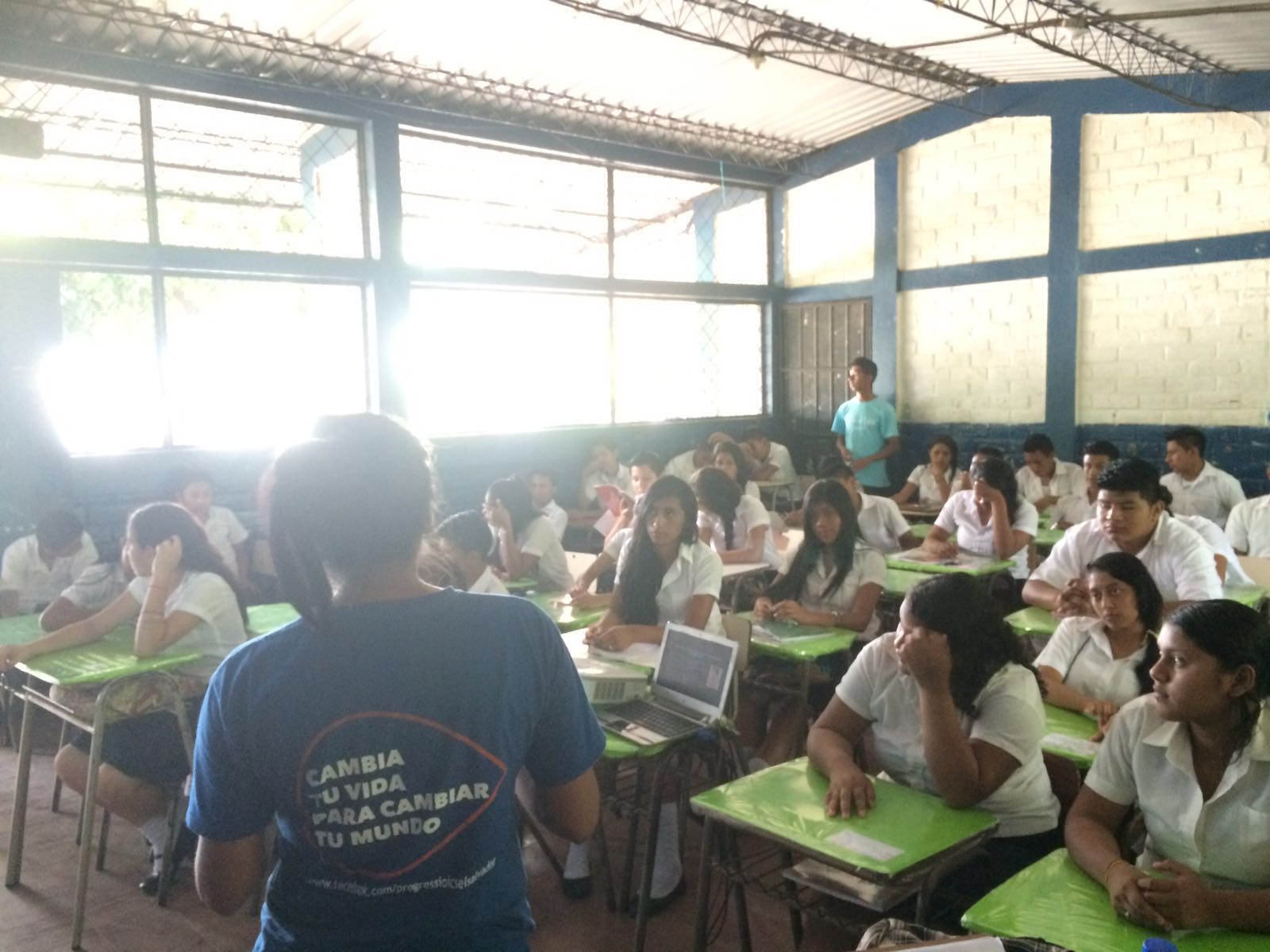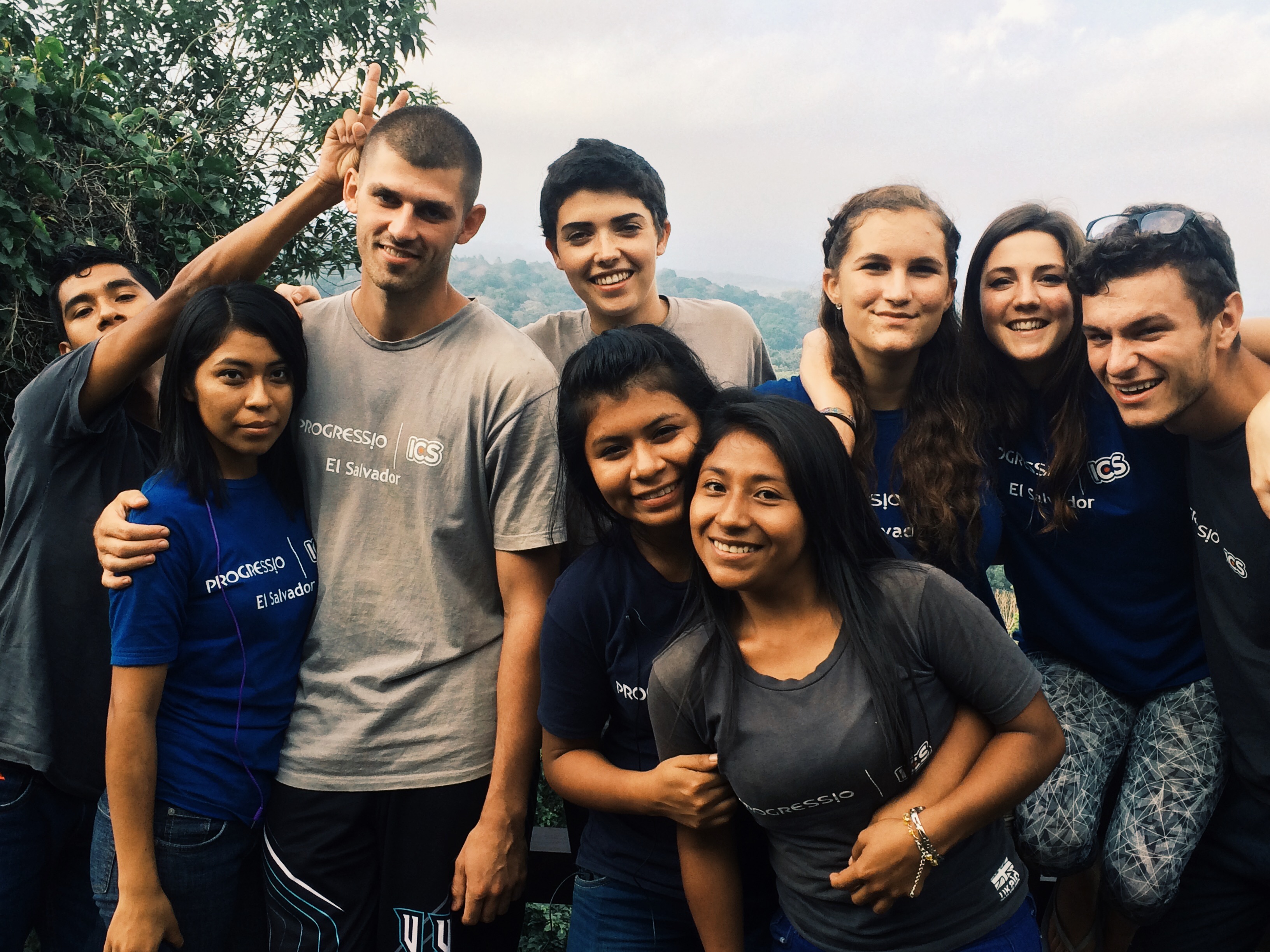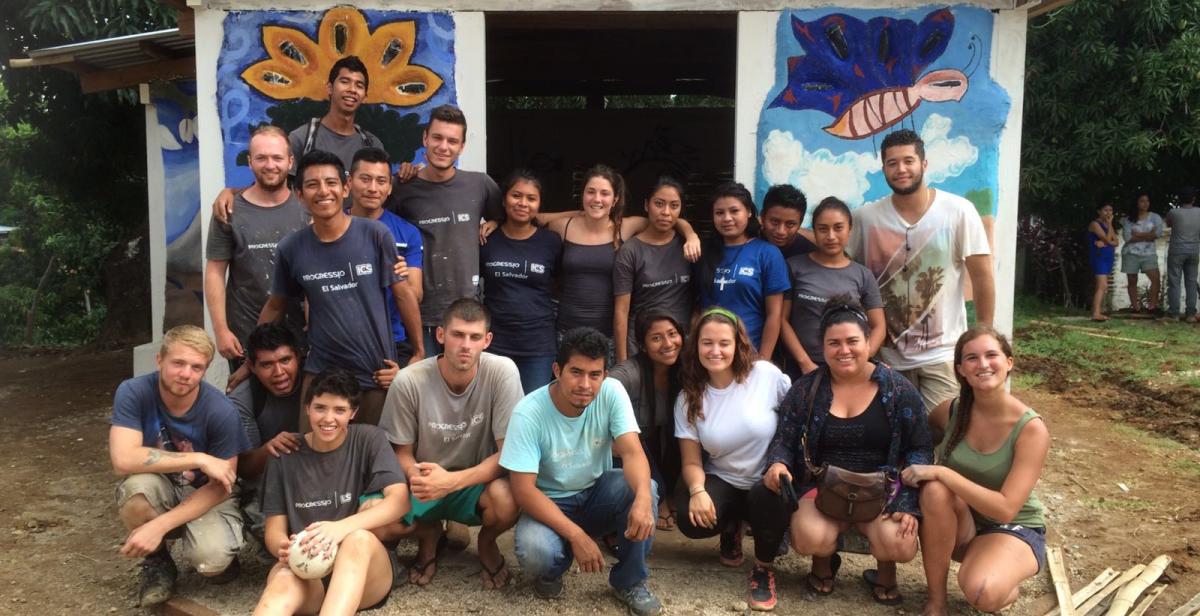This Sunday, 19 June, is the International Day for the Elimination of Sexual Violence in Conflict. Across the world, the issue of violence against women is prevalent in a lot of countries, and women are constantly fighting for their rights to equality. Due to a history of conflict in El Salvador, violence against women unfortunately regularly goes alongside gang crime and the prominence of a male dominated society. It is not to say that women are marginalised in every aspect - there are more women in Parliament here than there are in the UK for example - however, in many ways women are at an incredible disadvantage purely due to their sex.
El Salvador is one of only five countries in the world where abortion is criminalised with no exceptions. Regardless of whether the mother was raped, her health or life are at risk, or if the foetus is deformed, it has been known for women to face 40 years in jail for having an abortion. Astonishingly, miscarriages are also commonly perceived as a forced abortion and women are frequently imprisoned for aggravated murder. According to the Salvadorean’s Citizen’s Group for the Decriminalisation of Abortion, between 2000 and 2014, more than 250 women were reported to the police for abortion, 147 of whom were prosecuted and 49 convicted - 26 for murder, and 23 for abortion. The vast majority of these women were young and poor, and lost their baby due to health reasons.
Teodora del Carman Vasquez for example, is from a small community about an hour away from the capital, much like Santa Catarina Masahuat. She suffered a miscarriage at nine months - during which, she lost a huge amount of blood and fell unconscious. Her mother rushed her straight to hospital where she was treated until she came back round. However, when she did regain consciousness, the police were there waiting for her and she was already handcuffed to the hospital bed. She was hastily detained and sentenced to 30 years imprisonment for aggravated murder. She was 24 years old at the time, now 30, and is still inside today.
The notion that a man’s life is more worthy than a woman’s is too often represented in various statistics here in El Salvador. Between 1999 and 2009 for example, the murder of women rose by 104 per cent, compared to 34 per cent in men. A very male dominated society, combined with high involvement in violence and gang culture, means attitudes towards women can be dehumanising and women are treated as inferior, second class to men. Female victims of sexual assault and violence are not only common, but also blamed on the woman, usually for being sexually promiscuous, tempting male attention and therefore getting what she asked for.
Being murdered because you are a woman is something else that has a terrifyingly high statistic here in Salvador. In 2009, 579 women lost their lives from feminicide violence. That’s almost two every single day, in a country that is not as big as Wales. Today, 40 per cent of women murdered in El Salvador are sexually assaulted before their death. These women are often murdered by ex-partners, killed as an object to claim ownership over, and not necessarily secretively. It is not uncommon for words like ‘whore’ to be chiseled into the skin of victims, and for their bodies to be left in plain view of the public. By comparison, men are more often shot and show no signs of torture, and their bodies are likely to be hidden with all evidence concealed.
This is a problem that unfortunately also corresponds within authoritative bodies as well. For example, if a female victims body has nail varnish on, she is noted as a prostitute, and if she has tattoos, the ‘possible gang member’ box is ticked. These characteristics purely provide investigators with enough evidence to justify murder and avoid a deeper investigation. In a recent case, one man was accused of consistent domestic sexual abuse against his wife. His legal argument in court was that he had been so poorly treated and abused by his employer at work, that he was so full of rage that he had to take it out on someone upon returning home. The disparities between men are women in El Salvador are, for want of a better word, crazy. Not only is the life of a woman perceived as less worthy than that of a man’s, but also the ‘guilty until proved innocent’ approach in terms of abortion put women at an undeniably inferior standing in society as a whole.

One of the workshops that we have been running in the local school is on the topic of women’s rights. The response has honestly been much more positive than I expected. Teaching young people from the ages of about 14 to 17 is pretty daunting, especially when it comes to such an important subject. As part of the workshop, we play a short video about the abortion laws in El Salvador. It’s a really moving interviewing women who have suffered prison time for miscarriages. In our last workshop that we gave to a class of 14 year olds, they all wanted to stay behind after the school bell to watch the video and listen to the end of the presentation. It was such a good experience, feeling that we were getting through to them about such a sensitive subject that is so, so important here in El Salvador.
I have to say, living in Santa Catarina Masahuat I have not felt at all inferior for being female. Our national counterpart volunteers have never treated us differently for being female, nor has anyone in the community - perhaps it helps having a female mayor. If anything, there is a pretty profound sense of matriarchy, especially when it comes to the family.

Sure, when we first arrived we attracted quite a bit of attention that you can’t avoid. The mere fact that I’m about a foot taller than half of Santa Catarina puts me at an immediate disadvantage, and I guess the tattoos and a buzzcut don’t do me any favours. But then again, maybe the more blatantly foreign you are, the more you can get away with. Unsurprisingly, cat calling is just as much a thing here as it is in England, only it’s not so much a whistle as it a hiss. Shouts from across the street are slowly just becoming background noise. ‘Chica guapa’ is a common one, as is ‘chelita’ translating to ‘little white girl’. They sure know how to charm…
Written by ICS volunteer Martha Baker-Woodside



